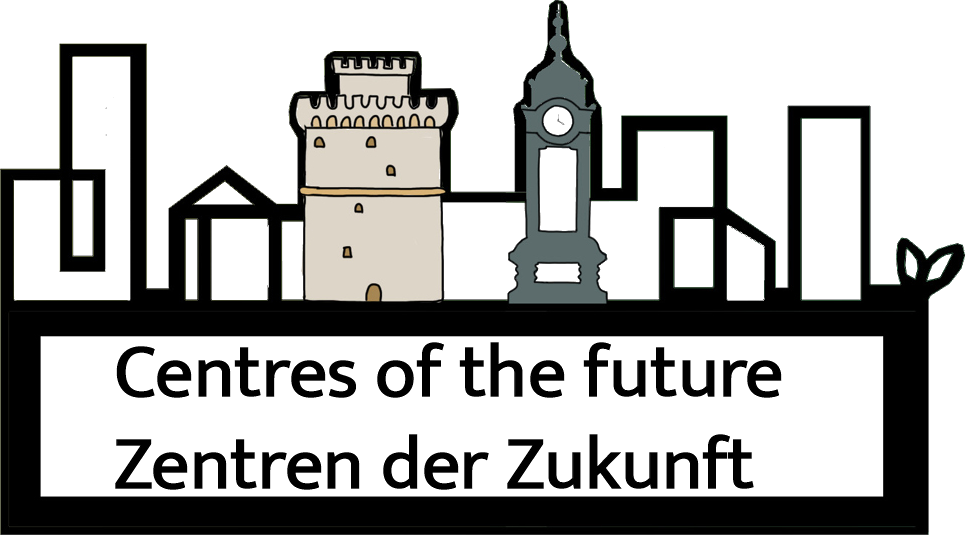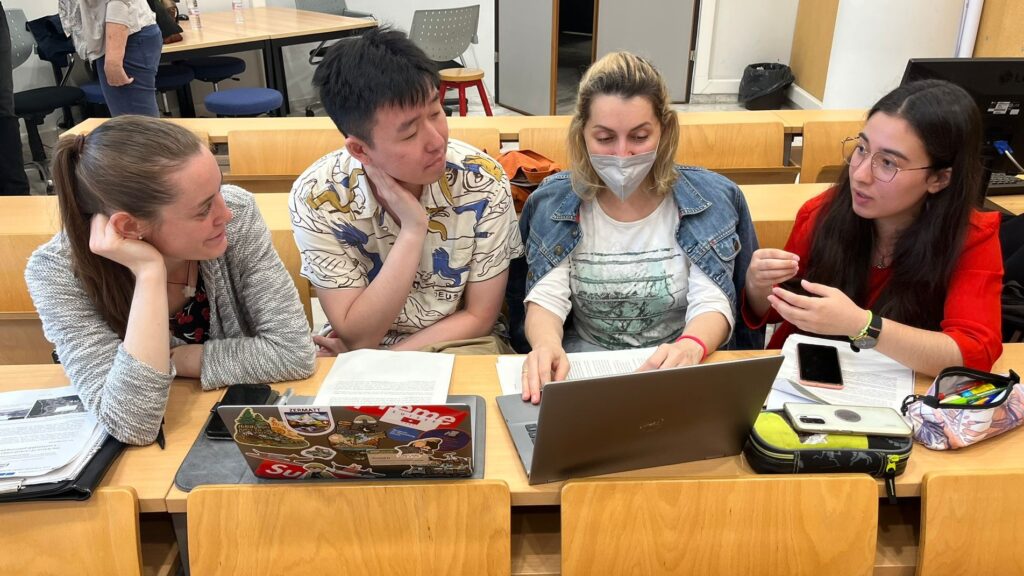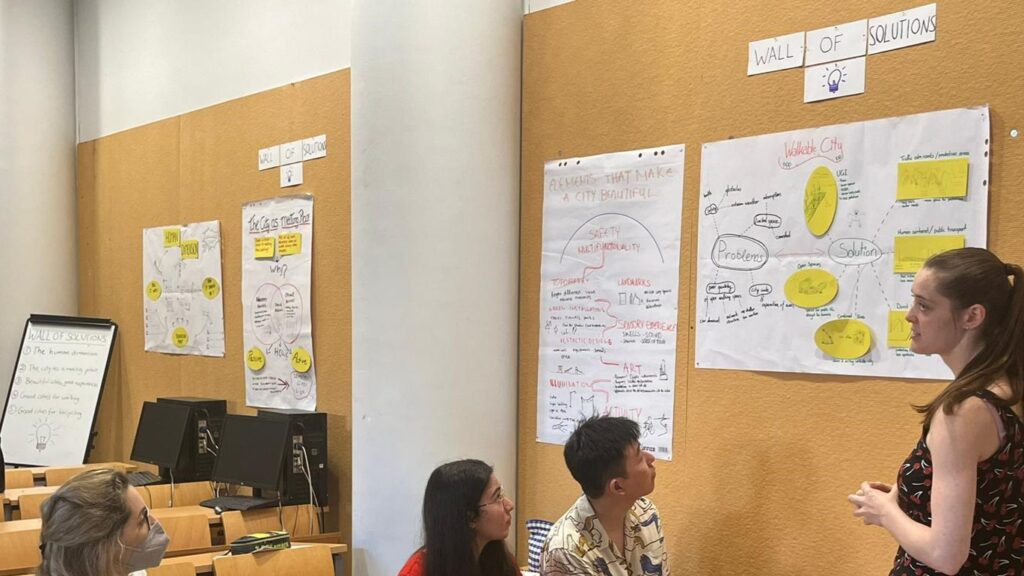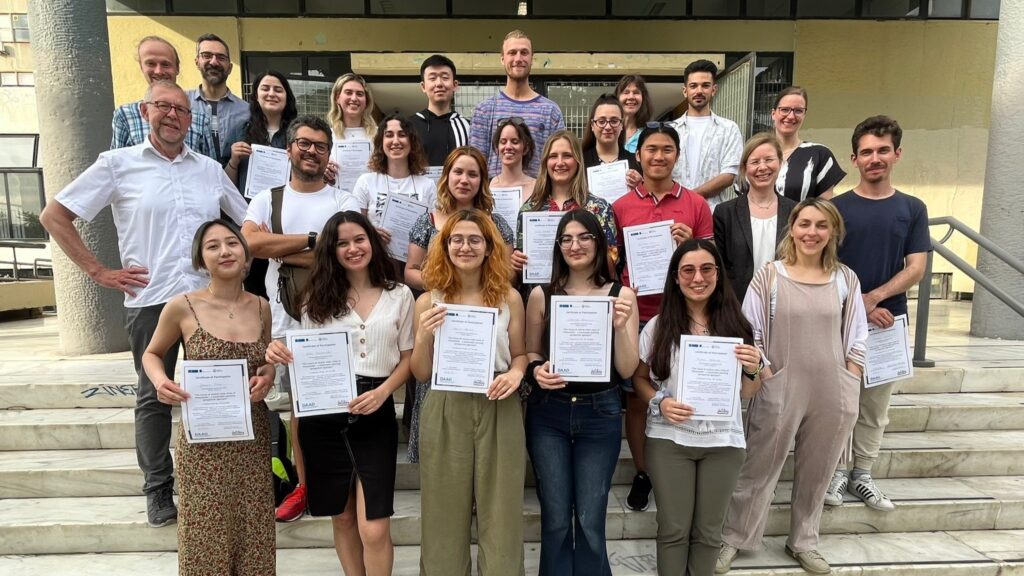Summer Schools will be held in Thessaloniki (2023 & 2025) and Hannover (2024) in annual rotation. The Summer Schools will focus on the analysis of the two cities and regions, the different planning systems and cultures, and the development of solutions (e.g. Smart City concepts, 100 Resilient City Thessaloniki, etc.). The goal is to bring participants into exchange in interdisciplinary teams. The framework program of the Summer Schools consists of thematic excursions, interdisciplinary workshops, group work and presentations. A joint dinner rounds off the Summer School and enables networking after the one-week exchange.
Summer School 2023 in Thessaloniki
„The future of central urban areas of Thessaloniki – a sustainable planning perspective approach“
From 30 May to 3 June 2023, 10 students from Leibniz Universität Hannover (LUH) and 10 students from Aristotle University of Thessaloniki (AUTh) took part in a summer school in Thessaloniki (Greece). The Summer School took place within the framework of the DAAD-funded university partnership “FutureCentres”. The topic was “The future of inner-city centres in Thessaloniki”. The Summer School was organised and supervised by Ass. Prof. Loukas Triantis, Dr. Lena Greinke, Dr. Nora Mehnen, Jonas Lamberg and Prof. Dr. Axel Priebs.
At the beginning of the Summer School, the students from the LUH and the AUTh were warmly welcomed. They were presented with the task for the Summer School, which they worked on together in small groups of Greek and German students. The aim of the Summer School was to develop a comprehensive perspective on a central neighbourhood of the city, the Vardaris-Xirokrini study area in the north-east of Thessaloniki. From this, solutions to the current challenges were developed. These findings should serve as a basis for students to develop steering mechanisms, governance proposals and design solutions that contribute to an attractive, resilient and sustainable future for Thessaloniki.
The groups dealt with the following topics respectively: 1. history of Thessaloniki and Vardaris-Xirokrini, 2. social structure, demography and citizen participation, 3. economic situation, housing and urban tourism, 4. public spaces and green areas and 5. built environment, transport and infrastructures. During a workshop by Jonas Lamberg, the participants gained an insight into the impact of 20th century urban planning concepts on today’s urban life. Afterwards, the small groups worked together on selected chapters from the book “Cities for People” by Jan Gehl and then presented their proposed solutions for a more human and environmentally friendly city with the help of posters. The results formed a “Wall of Solutions”.
Afterwards Ass. Prof. Loukas Triantis led a walk-through in the Vardaris-Xirokrini study area. Meanwhile, a meeting was held with staff of the Vardaris-based association “Selfhelp”, which is involved in drug abuse prevention projects in cooperation with citizens, schools and associations. In particular, the social aspects of the neighbourhood and the possibilities for community beautification were discussed.
On the second day, Katerina Danadiadou from the Municipality of Thessaloniki presented the history and challenges of urban development in Thessaloniki as well as future strategies and projects of the city. In addition, Garyfallia Katsavounidou from the School of Engineering of AUTh explained the impact of car-oriented planning on cities and stressed the importance of looking at cities not only from an overarching perspective, but also from a human dimension. In addition, Ass. Prof. Loukas Triantis spoke about the Greek planning system. The afternoon was spent with intensive group work.
On the penultimate day, Prof. Dr. Axel Priebs gave a lecture on inner cities in Germany with a detailed look at Hanover. Before the lunch break, the small groups presented their current progress. The groups continued their work for the rest of the day. The penultimate evening of the Summer School ended with a joint dinner in a restaurant near the rotunda of the Galerius.
On the last day of the Summer School, the small groups had time to prepare their presentations and results based on the newly acquired knowledge from the lectures before the final presentation took place. Each group presented the results on their respective topics. Questions such as “How has the study area developed?” or “What (planning) strategies or approaches could improve local conditions?” were discussed. At the end of the Summer School, all students received a certificate of participation.
The groups also developed a contribution for the internet-based platform “Uuurble”, which is dedicated to the research and description of cities and urban districts and enables their virtual exploration: https://uuurble.de/cities/thessaloniki/vardaris-a-central-district-of-thessaloniki/



